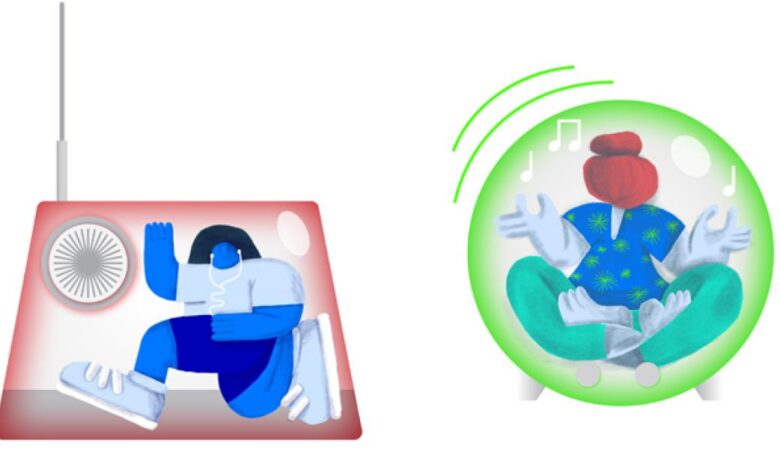Podcasts: Radio reinvented | The UNESCO Courier

Since then, the podcast genre has grown, taking on multiple formats. The chatcast genre, in which hosts make short, incisive comments on a theme, gained popularity. Inexpensive to make, the genre just needs a host with a good audience rapport and a distinctive theme that will attract listeners. There are chatcasts for women, such as Call Your Girlfriend, a frank and often funny show “for long-distance besties everywhere”. And the successful ‘knowledge as entertainment’ show, Stuff You Should Know, where the engaging male hosts seek to educate listeners about everything from science and history to triathlons and wills.
One common format has journalists breaking down the news of the week, but in a deliberately casual way. Listeners are made to feel like insiders on shows such as the online magazine Slate’s Political Gabfest in the US. In France, Le Nouvel Esprit Public has a similar approach, but its guests are public intellectuals moderated by veteran journalist Philippe Meyer – who started the podcast after his radio show was terminated.
Pop culture podcasts have proliferated, such as Eyes on Gilead, an Australian podcast about the hit television show, A Handmaid’s Tale. Interview shows also translate well to podcasting: a hugely popular example is The Joe Rogan Show, in which the American comedian interviews a raft of celebrities.
The press was quick to notice the potential of podcasting to extend its reach. In 2017, The New York Times launched The Daily, a narrative news digest billed as “How the news should sound”. Hosted by the Times political journalist Michael Barbaro, its formula is simple. Choosing one or two big stories of the day, it mines the expertise of the newspaper’s 1,300 journalists to deliver an informed take on the news. The style of the podcast is casual and personalized, coupled with creative audio production.
The results were immediate: young people subscribed to the free podcast in droves. In two years, The Daily was getting two million downloads per show. In September 2019, it reached a new milestone: an astonishing one billion downloads overall.
Although the US and the English-speaking world have dominated the podcasting market in the last five years, that looks set to change. In March 2019, Voxnest, an audio technology company, reported that the highest growth in podcast listeners was in Latin America – particularly in Chile, Argentina, Peru and Mexico.
This is mirrored by the success of Radio Ambulante (see p.10), the biggest Spanish-language narrative journalism podcast in the world. It also produces an English-language version, hosted on NPR (National Public Radio) in the US.
In India, podcasting is expanding rapidly, via networks such as IVM Podcasts. The India Explained Podcast promises “a refreshingly real take on all things Indian”, and is hugely popular. The Middle East has around 400 podcasts. The edgy Eib (shame in Arabic), a podcast from Amman, Jordan, examines the lives of ordinary people and social, cultural and religious taboos.
China tends to follow a different audio-listening model, where people pay a modest amount for educational “knowledge” programmes, or follow interactive audio platforms such as Himalaya, whose 600 million users get to sing songs and talk about family, or listen to audio books. Inspired by American programmes such as This American Life, Gushi FM features stories told by ordinary Chinese people of various backgrounds.
Podcasting has a powerful potential role as a tool of inclusion. To make an engaging podcast, you do need to know the nuts and bolts of audio production and to understand how audio works as a medium. Once this knowledge has been acquired, almost anyone can create a podcast. This allows marginalized voices – people from political or religious minorities, the LGBQTI community, the disabled, the elderly and others – to be heard.
Community groups, non-governmental organizations (NGOs), activists, and institutions of all kinds are now devising podcasts. For example, the Cancer Council of Australia podcast provides information and support, and universities showcase their research via podcasts. In an initiative described as “innovative and disruptive”, the Supreme Court of Victoria in Australia sought to make the justice system more transparent with Gertie’s Law, a popular podcast [for which the author was consulting producer] where judges discuss their work.
In a world plagued with disinformation and mistrust of the media, the authenticity of podcasting offers unique opportunities – from long-form investigative storytelling and the pursuit of social justice, to building transparency, trust and social inclusion.
Source link




